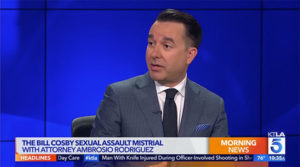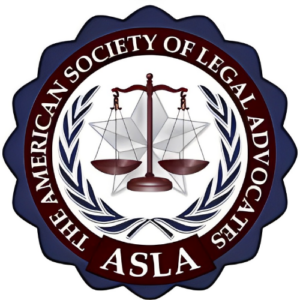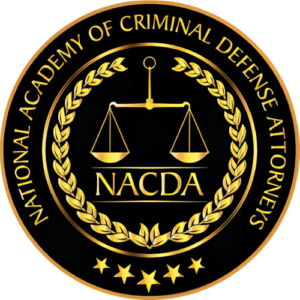Los Angeles Manslaughter Defense Attorney

When your future, freedom, and reputation hang in the balance after being accused of manslaughter, you need a legal ally who truly understands the gravity of your situation.
At Rodriguez Law Group, we defend individuals accused of manslaughter throughout Los Angeles. With decades of legal experience and a history of achieving positive outcomes, we’re ready to fight relentlessly on your behalf.
If you need trusted representation, our Los Angeles manslaughter defense attorney provides you with the legal experience, compassion, and aggressive advocacy you deserve. Call us today at (213) 995-6767 for your confidential case evaluation.
Quick Navigation Menu
- Why Rodriguez Law Group is a Great Choice for Manslaughter Defense
- Defining Manslaughter in California
- Penalties for Manslaughter in Los Angeles, California
- Common Defense Strategies for Manslaughter Charges
- Manslaughter vs. Capital Murder
- How a Manslaughter Charge Affects Your Family, Employment, and Education
- How Can a Criminal Defense Lawyer Help with Manslaughter Charges in Los Angeles County?
- Contact Rodriguez Law Group Today to Help With Your Los Angeles Criminal Charges
Why Rodriguez Law Group is a Great Choice for Manslaughter Defense

Manslaughter cases are often highly complex, involving intricate legal and factual issues. Prosecutors will aggressively pursue a conviction; without a strong defense, you could face devastating penalties.
With such high stakes, it is crucial to hire an experienced Los Angeles manslaughter defense attorney to safeguard your future.
At Rodriguez Law Group, we take a proactive approach to defending our clients. Our defense strategies are thorough, calculated, and grounded in years of courtroom experience.
Here are a few reasons we’re the right choice for your defense.
1. Insider knowledge from a former prosecutor
Attorney Ambrosio E. Rodriguez spent over 13 years as a Senior Deputy District Attorney. He understands how prosecutors build and present manslaughter cases, including their strategies and weaknesses.
With this insight, Mr. Rodriguez can craft a defense tailored to challenge the prosecution’s arguments at every turn.
2. Comprehensive case evaluation
When you choose Rodriguez Law Group, we’ll conduct an in-depth analysis of your case, examining every detail to uncover weaknesses in the evidence, procedural errors, or violations of your rights. Manslaughter cases can hinge on small details, and we leave no stone unturned.
3. Aggressive and compassionate advocacy
We know that a manslaughter accusation is one of the most challenging experiences anyone can face. You may feel overwhelmed, scared, and unsure about the future.
At Rodriguez Law Group, we provide compassionate guidance to help you understand your rights and options while aggressively defending you in court.
Defining Manslaughter in California

Manslaughter – Penal Code § 192 PC
Manslaughter, as defined in California Penal Code Section 192 PC, is defined to mean the unlawful killing of another person without malice.
California created three different types of manslaughter: voluntary manslaughter, involuntary manslaughter, and vehicular manslaughter. Each type of manslaughter covers a different type of criminal behavior.
Manslaughter is a serious criminal charge in California, typically defined as unlawfully killing another person without malice aforethought. Unlike murder, manslaughter does not involve premeditation or intent to kill.
1. Voluntary manslaughter
Voluntary manslaughter occurs when someone kills another person during a sudden quarrel or in the heat of passion. These situations typically arise when emotions run high, and a person reacts impulsively without thinking.
While voluntary manslaughter lacks the deliberate intent to kill, it’s still a felony offense.
For instance, if someone discovers their spouse in an affair and, in the heat of the moment, causes their death, they could face voluntary manslaughter charges.
2. Involuntary manslaughter
Involuntary manslaughter, on the other hand, results from negligent or reckless actions that lead to another person’s death. These cases often involve unintentional killings where the defendant did not mean to cause harm but acted without due caution.
For example, if someone is recklessly handling a firearm and accidentally discharges, killing another person, they may face involuntary manslaughter charges.
Both forms of manslaughter carry severe penalties and lifelong consequences. If you or a loved one is facing manslaughter allegations, seek immediate legal support from a skilled criminal defense attorney in Los Angeles.
Penalties for Manslaughter in Los Angeles, California

Manslaughter charges in California are felony offenses, which means a conviction can lead to life-altering consequences, including incarceration, heavy fines, and a criminal record that can follow you forever.
Voluntary manslaughter penalties
- Prison Sentence: Up to 11 years in state prison
- Fines: Up to $10,000 in fines
- Probation: Formal probation in some cases
- Loss of Rights: Felony manslaughter convictions often lead to the loss of civil rights, like voting or possessing firearms.
- Involuntary Manslaughter Penalties
- Prison Sentence: Up to 4 years in state prison
- Fines: Up to $10,000 in fines
- Probation: Supervised probation may be available.
Beyond legal penalties, a manslaughter conviction can negatively impact your professional life, personal relationships, and job opportunities. You could lose professional licenses and suffer severe reputation damage that may take decades to recover.
Common Defense Strategies for Manslaughter Charges
Every manslaughter case is unique, and the right defense strategy depends on the situation. When you work with our manslaughter defense attorneys in Los Angeles, we’ll create a personalized defense approach for your case.
Here are a few common defense strategies we may pursue.
Self-defense or defense of others
If the killing occurred while defending yourself or protecting someone else from imminent harm, this could serve as a legal defense. Self-defense requires proving that your actions were reasonable given the perceived threat.
Lack of intent
Manslaughter, particularly voluntary manslaughter, requires intent, even if it’s in the heat of passion. Proving no intent to kill could lead to the court reducing or dropping the charges.
Accident
If the death resulted from a true accident without negligence or recklessness, your lawyer may raise this as a viable defense to involuntary manslaughter.
We’ll use the best defense possible to uphold your rights and make your side of the story clear.
Manslaughter vs. Capital Murder

Manslaughter and capital murder are vastly different charges, primarily distinguished by the intent behind the act, the context of the crime, and the legal consequences tied to each. While both are serious offenses, the degree of culpability varies greatly between the two.
Intent
At the heart of the distinction lies intent. Capital murder is reserved for acts carried out with premeditated intent or malice. The perpetrator made a conscious, deliberate decision to kill, often planning the act.
Circumstances
Capital murder occurs in calculated or particularly heinous circumstances. Examples include killings that occur during the commission of another felony (e.g., robbery or kidnapping), targeting specific victims such as law enforcement officers, or crimes involving torture or multiple fatalities.
These aggravating elements intensify the crime’s severity and show a higher degree of culpability.
Penalties
The penalties for capital murder far exceed those of manslaughter, reflecting its classification as the most severe form of homicide. A conviction for capital murder in California may result in life imprisonment without parole or even the death penalty.
Manslaughter, while still punished severely, carries lighter sentences. Depending on the exact circumstances, penalties can include several years of incarceration, probation, or fines.
In a nutshell, capital murder is a deliberate and often calculated execution, with aggravating factors that significantly elevate the severity in the eyes of the law.
Manslaughter, however, stems from less intentional or extreme situations, resulting in more lenient penalties.
Familiarizing yourself with these distinctions clarifies the nuanced approach the justice system takes in prosecuting these vastly different crimes.
How a Manslaughter Charge Affects Your Family, Employment, and Education

When someone faces a manslaughter charge, the impact reaches far beyond the courtroom. These charges affect nearly every part of life — family, work, education, and plans — often in ways people don’t expect until it’s too late.
Family impact
A manslaughter charge can immediately disrupt family life. Courts may issue no-contact orders, even if the alleged victim is unrelated, limiting a person’s ability to return home or see loved ones. If children are involved, there’s a strong possibility that child protective services or a family court will intervene.
Courts often use pending felony charges to limit or suspend parental rights, sometimes before a trial begins. Even close relatives and friends may distance themselves out of fear or social pressure, leaving a person isolated when they need support the most.
Employment and professional consequences
A pending manslaughter charge can put careers on hold or end them completely. For people in licensed professions — like healthcare, education, construction, and real estate — a serious criminal charge can trigger investigations by licensing boards, leading to suspension or permanent loss of a professional license.
Many employers take immediate action when they learn that prosecutors are charging an employee by placing them on leave or firing them outright, even before any conviction.
Jobs that require background checks, security clearances, or interaction with the public may become impossible to keep. The stigma of a manslaughter charge alone may cause employers to distance themselves. Once a charge becomes public, you will have trouble explaining or overcoming it.
Education, school, and training
Manslaughter charges can also derail educational plans. Many colleges, universities, and trade schools have codes of conduct that allow them to suspend or expel students charged with serious crimes, even before the case concludes.
A criminal charge may also affect eligibility for student housing, internships, or on-campus employment.
For students in professional training programs—such as nursing, law, teaching, or law enforcement—a manslaughter charge may prevent them from completing necessary certifications or disqualify them from licensing exams.
Even if a program allows a student to remain enrolled during the case, the charge itself could later be used as a reason to deny licensing once training is finished.
Scholarships, grants, and financial aid may also be jeopardized, as many funding sources require recipients to avoid criminal conduct. A felony charge, regardless of outcome, can also complicate applications to future schools, with many asking about pending or past criminal cases.
Long-term and future consequences
Beyond the immediate legal battle, a manslaughter charge affects long-term opportunities. Rental applications and background checks for housing often reveal pending charges or past cases, making it difficult to secure stable housing.
In many jurisdictions, felony charges and convictions can also disqualify someone from voting, owning firearms, or holding public office.
Even if the case resolves without a conviction, public records and media coverage may linger indefinitely, making it difficult to rebuild a reputation.
Professional relationships, friendships, and community standing may suffer lasting damage, especially if the case received attention in the press or online.
Life after a charge
A manslaughter charge doesn’t just threaten a person’s freedom — it threatens their ability to live a stable life. The effects reach into family, work, education, and future plans. People facing such charges often need to think beyond the courtroom and consider how to protect their relationships, career prospects, and opportunities for personal growth while navigating the legal process.
How Can a Criminal Defense Lawyer Help with Manslaughter Charges in Los Angeles County?

Facing manslaughter charges can be a daunting and overwhelming experience. The legal consequences of such charges are severe, and navigating the complex criminal justice system without proper representation can be challenging.
There may be insufficient evidence of any intentional killing or other mitigating factors that may lead to a favorable outcome, such as a not guilty verdict.
This may involve collaborating with forensics, ballistics, or psychology professionals to challenge the prosecution’s evidence and present alternative explanations.
A criminal defense lawyer can help the accused understand the legal process and their rights. When your freedom is on the line, it’s the most important call you can make.
Contact Rodriguez Law Group Today to Help With Your Los Angeles Criminal Charges

If prosecutors accuse you or a loved one of manslaughter, don’t wait to seek legal help. Time is critical, and the sooner we begin building your defense, the better your chances of success.
Contact Rodriguez Law Group at (213) 995-6767 for your confidential, no-obligation case evaluation. Our team of trusted criminal defense lawyers in Los Angeles is here to fight for your freedom and provide the compassionate support you need during this difficult time.
Your future is worth fighting for—call us today.


